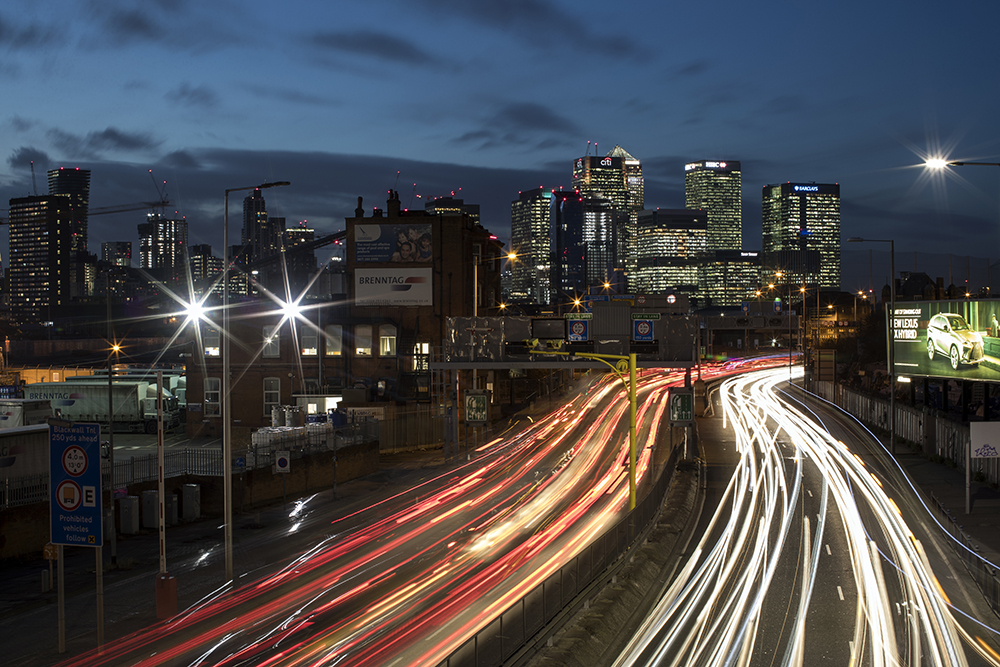
British politics, like every politics, is built on myths; stories which animate and structure everything its practitioners think about themselves and what they can enact over those they govern. But Britain might be especially dependent on them. It has a political and media culture largely driven by a series of competing narratives: terrain which must never be crossed, “iron rules” which cannot be broken. And few myths are as undying as the idea that there is a “war on motorists”.
This cry has gone up repeatedly throughout the summer as the expansion of London’s Ultra Low Emission Zone (Ulez) has inched closer. Every day a newspaper proclaims that Sadiq Khan, the Mayor of London, abhors cars and those who drive them. This fits into a longer-running narrative, central to British political life, that “the motorist” is a persecuted and put-upon minority, misunderstood and despised by political elites.
It is such a potent idea that it has led the British state into some very odd and very expensive places. It meant petrol duty was one of the few taxes to remain untouched for 13 years, at a cost of £80bn a year to the Exchequer. It meant the 1999-2000 petrol strikes were the only real moment of peril for the first half of Tony Blair’s first parliament. This week it led to the absurdity of Sir Iain Duncan Smith, a former cabinet minister, excusing vandalism against government property, as Ulez cameras around the capital were damaged. It is impossible to imagine Duncan Smith, or any other senior Conservative figure, condoning violence or disorder from any other group – Just Stop Oil protesters, for example. But he does so without being accused of hypocrisy precisely because of the power of the myth.
The myth has, if anything, become more entrenched in recent years because the ideas that anchor it have become more common in other parts of our politics: the (relatively) powerful portraying themselves as powerless; the “in” groups portraying themselves as the “out”. Car owners are in fact likely to be richer, older and of greater social status, though we rarely hear that expressed. It is often the poor and the young who rely on public transport, if it exists, but how often are they part of the conversation? This is the context in which at least part of the vituperative reaction against Ulez must be understood. It is one of the very few occasions on which “the motorist” has lost, perhaps intuiting that the world ahead will be less favourable to them than the world behind.
[See also: You can thank Boris Johnson for Ulez]
The Ulez furore draws on other, deeper Conservative instincts about what the car is and what it represents. When the Channel Tunnel was under construction there were fierce battles between the Thatcher government and François Mitterand’s about what sort of transport the connection should offer. Thatcher wanted only cars, calculating that another unionised rail network was the last thing her new Britain needed. The French insisted. That deep Conservative attachment to the car lives on. If an Englishman’s home is his castle, his car is his inalienable means of getting there, offering independence and freedom from the indignities of collective transport.
We rarely recognise how deeply the car is cherished in British political culture. We mock the American attachment to giant vehicles and vast multi-lane freeways, and their non-existent public transport systems – but we are far closer to them than we would like to admit. Far from there being a “war on the motorist”, much of British economic and transport policy is oriented in their direction.
This is despite the fact that cars are self-evidently bad for cities. It isn’t just a matter of air pollution, though that remains a menace across Britain. Rather, in our urban environments, cars can be bullies, the forever kings of the road. They will always win out against the pedestrian or the cyclist, who is forced to breathe their toxic fumes, to wait, to move around them.
Consider, for a moment, your favourite cities, or your favourite parts of your city. I suspect they are pedestrianised, spaces where cars are absent or rare. I suspect they are cities like Amsterdam or Toulouse, which prize the walker, or quarters like London’s South Bank or Liverpool’s riverside. It has become commonplace in recent years to hear conservative thinkers rail against ugly buildings; rarely do they rail against ugly roads and all that goes with them. But when cars are banished from cities, the air improves and so do the cities themselves. The humans move in and do everything humans do: set up markets, play sport, make art, have conversations, start dining. They resume living.
Cars are a necessity in many places, especially more rural areas. And it is true that few cities enjoy the benefits of a properly integrated transport system like London’s. But is that because we rely too much on our cars, allowing innovation to be strangled and investment denied? It would be a start if we could recognise the trade-offs we make when we put the car at the centre of city life, and if we recognise the power of the myth. The war against the motorist? In the cities, more often than not, it can be the motorists who wage war on the rest of us. For too long in British politics it has been their way, or the highway.
[See also: Rishi Sunak can’t save the British motorist]



